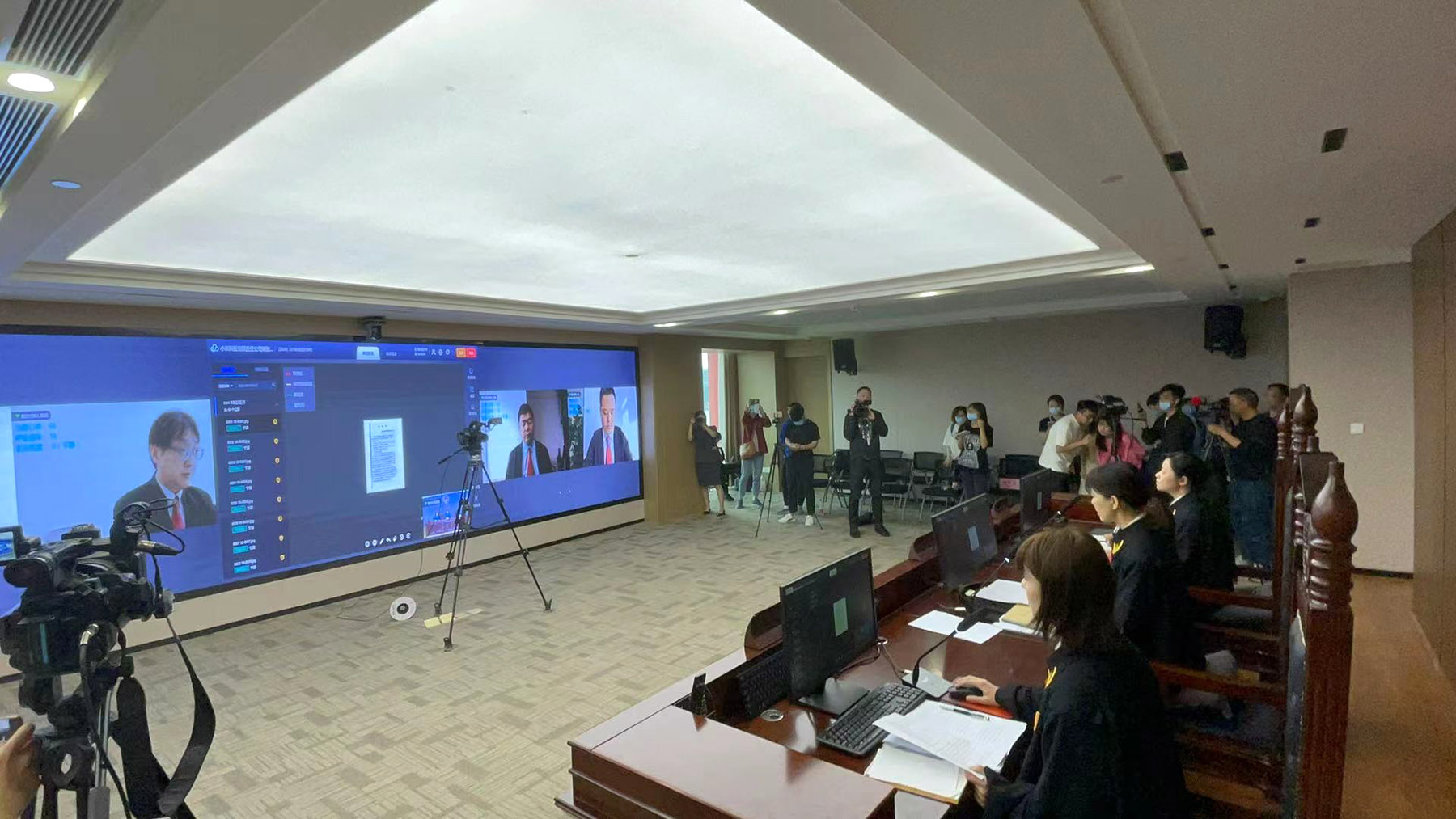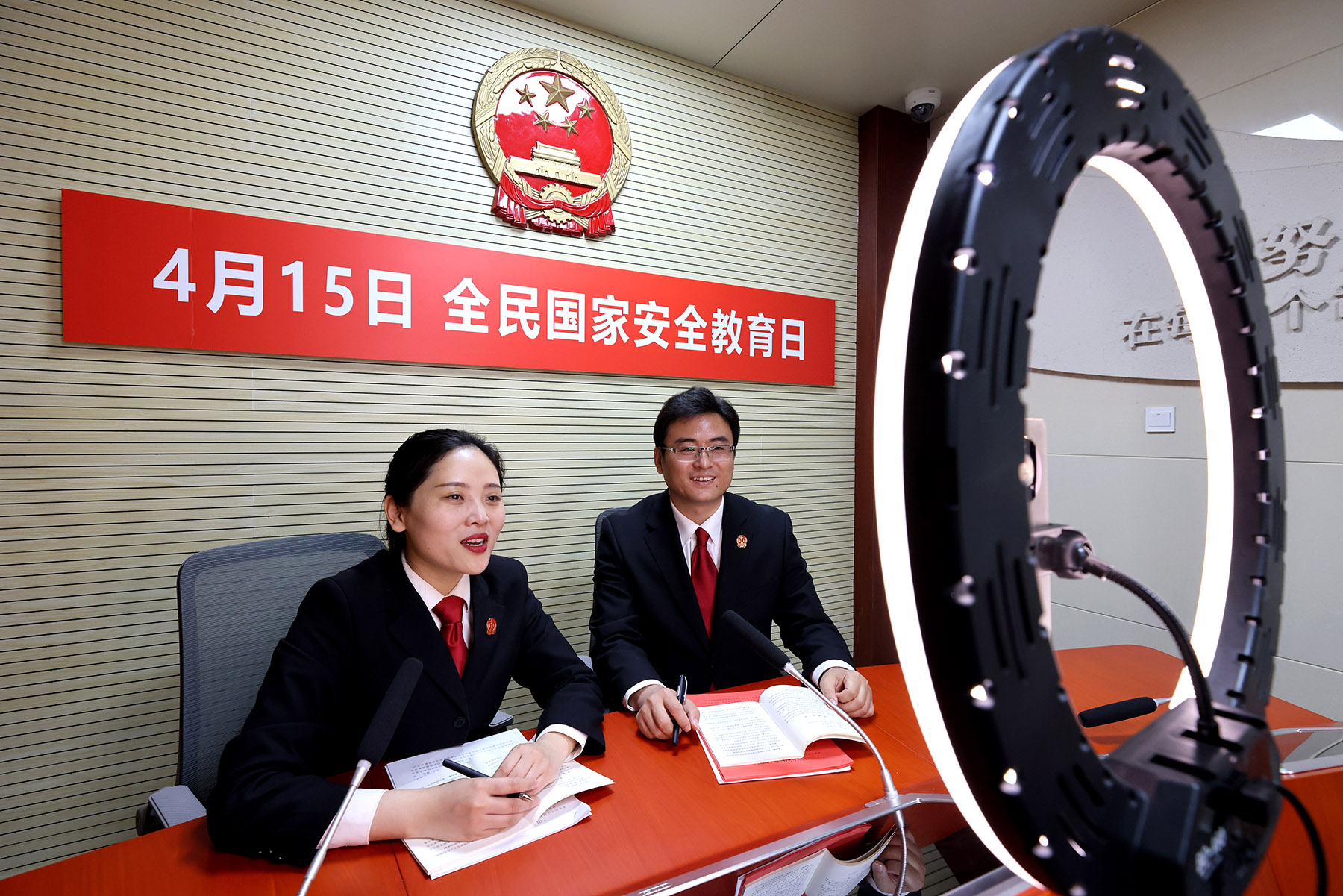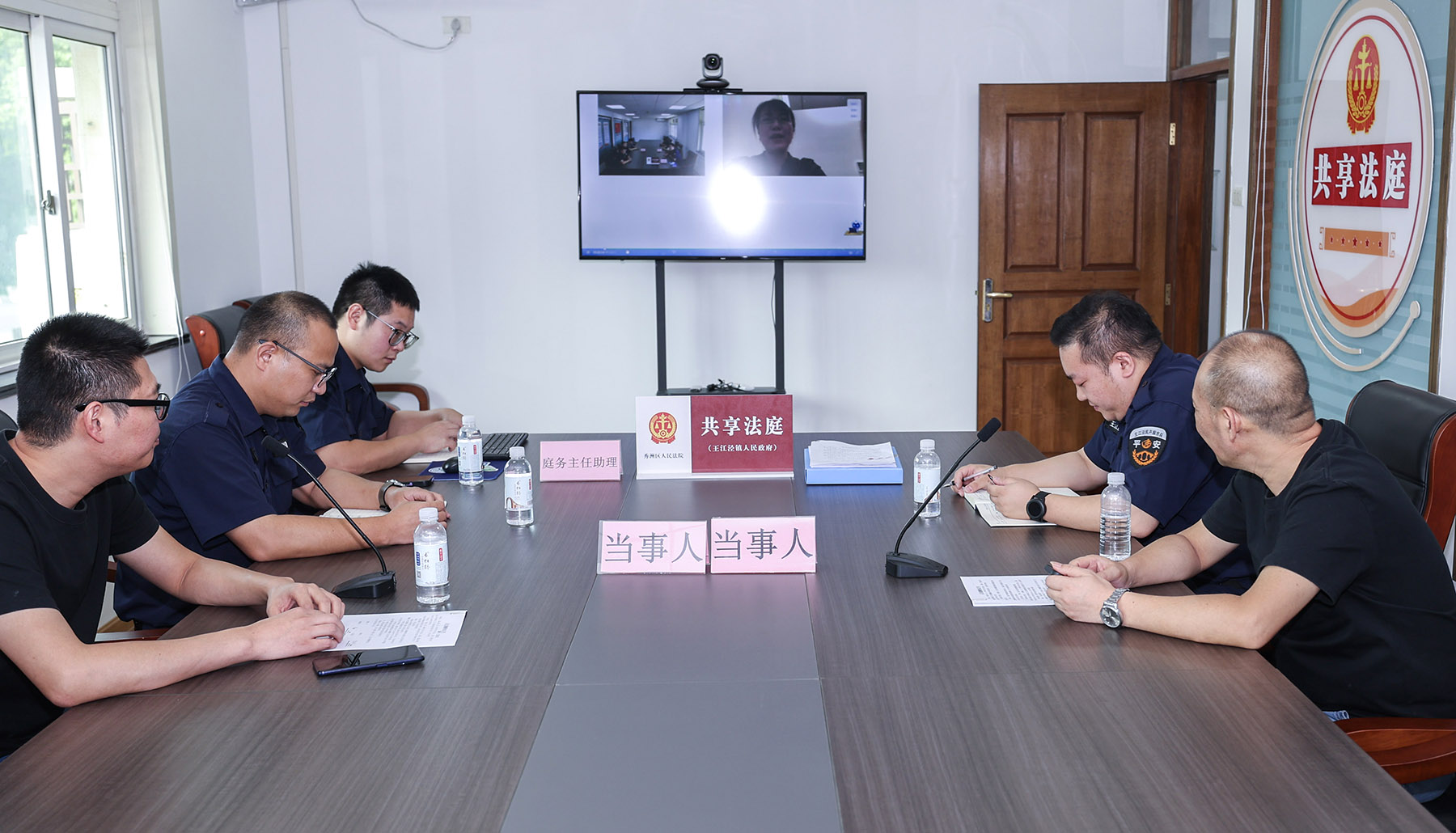Rapid socioeconomic development and technological innovation lead to more efficient legal system

More than 30 years ago, judge Ren Jianyou would have to ride her bicycle to inform people to attend their day in court. Today, the now-retired judge uses the digital superhighway to mediate disputes.
In the 1980s and 1990s, for a judge, being able to ride a bike was almost as important as knowing Chinese legal statutes in and out.
At that time, the majority of civil cases weren't held in grand and specialized courtrooms, but rather in nondescript offices, with a squat table and a few chairs.
However, as China's economy rapidly grew, followed by a wave of technological advancement, especially in the past decade, Chinese courts have been revolutionized — made smarter and more organized — giving litigants easier access to legal services and putting the tools of the world wide web at judges' fingertips.
Before Ren retired and hung up her gavel in 2001, Beijing Chaoyang District People's Court had already heard civil cases in specialized courtrooms and she'd learned to use a computer to handle legal matters.
READ MORE: China's Law-Based Cyberspace Governance in the New Era
Now, despite retiring, the 75-year-old is still fighting on the legal front line as a part-time mediator, helping to resolve disputes before they get to court.
Ren searches for legal information with her laptop instead of cycling to the Supreme People's Court in central Beijing to read books and root out materials. After helping mediate disputes, she upholds the mediation agreements via an online platform to get judicial confirmation from courts, no longer having to wait more than a month as she did in the past.
"Such quick and convenient services were unthinkable when I was a judge," she said.
"I could never have imagined that today's litigants and lawyers can file cases, submit evidence and attend mediation or litigation on their mobile phones, rather than traveling to courts with bags full of materials."
Noting that the changes are great achievements made by the country in terms of promoting the rule of law over the past decades, she added, "No matter how technologies improve and how services are optimized, the goal remains unchanged, that is, serving the people and delivering justice."
Happy despite hardship
Before she was transferred to the Chaoyang court in 1991, Ren worked for the Weiyang District People's Court in Xi'an, Shaanxi province. In both cities, the courts shared office buildings with other government departments such as the justice and the finance bureaus.
Ren said working in this environment was hard. "I was in the same room with two other judges. If we all heard cases at the same time, it would be difficult for us and our litigants not to affect each other," she said.
Another retired judge He Huiying, 65, has a similar story. In 1979, when she came to the court in Beijing's Tongzhou district to work, it was just a courtyard and a row of bungalows, no specialized courtrooms, judge's benches and robes.
"At that time, judges had to ride around to figure out the root causes of conflicts and notify residents involved in disputes to attend their trials," said He, who retired in 2014. "The longest ride took me more than an hour and a half to reach the place where the dispute occurred."
Even creating legal documents back then was a long process, according to He. A judgment or mediation agreement needed to be first handwritten by judges, and then sent to a typing room where typists typed it on wax paper with an old-fashioned typewriter and printed it with ink. Finally, the judges checked the correctness and stamped it, she said.
Ren recalled with a smile, "In the 1990s, a clerk and I completed more than 500 cases a year, all written by hand. Afterward, we were too tired to lift our arms."
Despite the lack of convenient transportation and intelligent tech, neither of the two retired judges complain about the hardships and fatigue they faced in those years.
"Whenever I prepared to write a verdict by hand, I was actually very happy, because it meant that the facts had been found out and the case would be over. It's good both for me and the litigants," He added.

Counting pigs
With socioeconomic development and the pace of judicial standardization increasing, the courts where the two retired judges used to work have become large high-rise blocks, with clearly divided trial and work areas.
Judges must wear robes during case hearings, and the design of courtrooms as well as the placement of chairs and benches is followed to a unified standard.
More than 3,500 courts nationwide have embraced the internet and digital technologies. At Beijing Internet Court, for example, all legal procedures, including case filing, case hearing, evidence exchange and ruling delivery, can be done online.
Litigants and lawyers are allowed to attend trials via video link, "which can help save time and travel expenses, meaning residents can deal with their cases at any time and any place, such as in a car or a meeting room", said Yan Jun, a judge from the court.
"Previously, I had to find the documents I wanted from lots of paper materials piled up like mountains in my office, but since 2018 when I came to work at the court, I have turned to an internal intelligent system where a database can give me the accurate information," she said.
As the work environment and methods have changed, so has the content of some disputes.
When Ren was at the Chaoyang court, one of her major jobs was to deal with divorce-related disputes. What impressed her most was a trip to the outskirts of Beijing in the early 1990s to help split the family property — a number of pigs — between the divorced couple.
"The pair didn't reach an agreement on the exact number of pigs in their household and how many pigs each side could get, so I went to their home to further investigate and count the pigs," Ren said with a laugh. "Domestic animals were also important family assets at that time, as were savings and household appliances such as televisions, refrigerators and washing machines.
"Since the late 1990s, most divisions of family properties have focused on real estate and private cars," she said, adding that the change is due to the country's economic development and the improvement of people's living standards.
Yan agreed, saying that the establishment of the internet court was to meet people's new legal demands and to seek better solutions for internet-related disputes in the fast-developing digital age.
While the growth of e-commerce and the increase of internet services have made online contract disputes more frequent in recent years, the popularity of online literature has also enhanced the public's awareness of copyright protection, Yan said.
"Emerging businesses and technologies, including artificial intelligence and big data, have brought new types of civil disputes to the world such as those on AI-generated content and the intellectual property of data," she said. "At the same time, they have also challenged the judiciary, urging us to explore new ways to protect the legitimate rights of people and regulate the industrial development by rule of law."

For the people
He reaffirmed though that although legal services have become more diverse and courts have become more technology-friendly, "our pursuit to serve litigants and uphold justice has never changed".
Looking back on her 35-year career, she said, "Being a judge to solve problems and alleviate conflicts for the people was the thing that made me most proud."
In the 10 years since her retirement, she has devoted herself to law education for teenagers.
ALSO READ: AI 'resurrection' of dead stars raises ethical, legal concerns
She's not only invited judges to provide lectures for students, but also worked with the district's youth education and assistance program to illustrate real cases in comic book form and provided them free to schools.
In her view, improving efficiency by applying technologies is important, but it is more important for judges to enhance their learning ability to help people tackle legal issues.
The goal of courts becoming smarter and more professional is to safeguard justice for the people, Yan said.
Ren added, "Solving difficulties for the people in line with the law is something that cannot be changed at any time."


